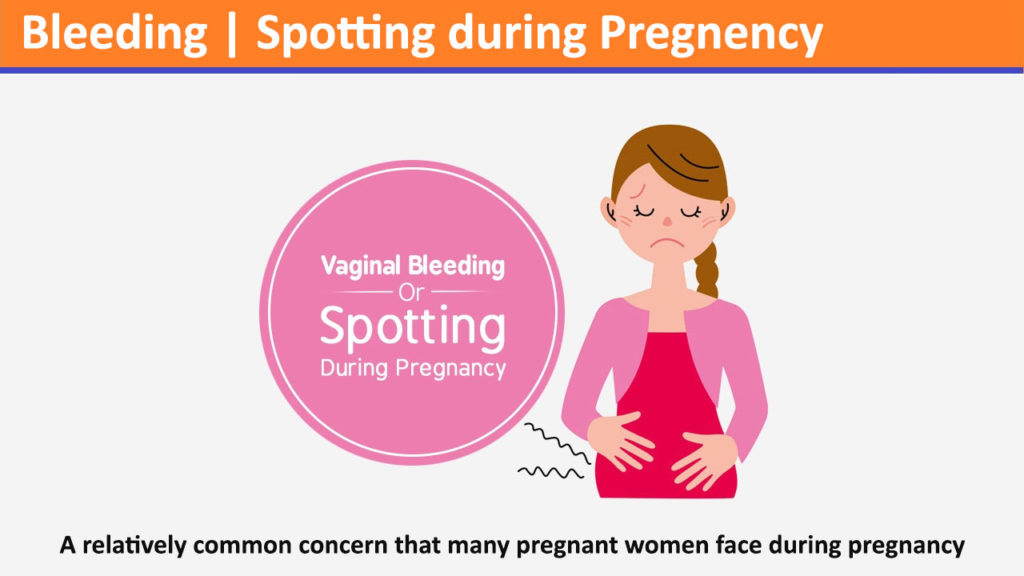Spotting is a relatively common concern that many pregnant women face during pregnancy and does not always mean there’s a problem – but it can be a dangerous sign as well.
Approximately 20% of women report they experience spotting during their first 12 weeks of pregnancy.
Spotting is most commonly seen in the sixth and seventh weeks of pregnancy. Spotting wasn’t always a sign of miscarriage or meant that something was wrong.
If you see spotting, consult your healthcare provider immediately.
Your healthcare provider may encourage you to do the following:
- COMPLETE BED REST or more naps
- More time off your feet
- Staying well hydrated
- Limit your physical activity
- Elevate your feet when possible
- Avoid lifting items over 10 pounds
Causes of bleeding in early pregnancy
Implantation bleeding
In early pregnancy, you might get some harmless light bleeding, called “spotting”. This is when the developing embryo plants itself in the wall of your womb. This type of bleeding often happens around the time your period would have been due.
Cervical changes
Pregnancy can cause changes to the cervix, and this may sometimes cause bleeding – after Sexual intercourse or Heavy lifting/excessive exercise or Gynecological exam, such as a vaginal ultrasound.
Miscarriage or ectopic pregnancy
During the first 12 weeks of pregnancy, vaginal bleeding can be a sign of miscarriage or ectopic pregnancy.
Miscarriage
If a pregnancy ends before the 24th week, it’s called a miscarriage. Around 1 in 5 pregnancies ends this way.
Many early miscarriages (before 14 weeks) happen because there is something wrong with the baby. There can also be other causes of miscarriage, such as hormone or blood clotting problems.
Most miscarriages occur during the first 12 weeks (3 months) of pregnancy and, sadly, most cannot be prevented. Other symptoms of miscarriage include:
- cramping and pain in your lower abdomen
- a discharge or fluid from your vagina
- a discharge of tissue from your vagina
- no longer experiencing the symptoms of pregnancy, such as feeling sick
- If you have bleeding or any of the symptoms above, contact your healthcare provider straightaway.
Ectopic pregnancy
An ectopic pregnancy is when a fertilized egg implants outside the womb – for example, in the fallopian tube.
It can cause bleeding and is dangerous because the fertilized egg cannot develop properly outside the womb. The egg has to be removed, which can be done through an operation or with medicines.
Symptoms of an ectopic pregnancy tend to develop in the 6th week of pregnancy but can happen later.
Other signs of ectopic pregnancy can include:
- tummy pain low down which may be on one side
- vaginal bleeding or a brown, watery discharge
- pain in the tip of your shoulder
- discomfort when peeing or pooing
- Contact your healthcare provider, if you have symptoms of an ectopic pregnancy.

